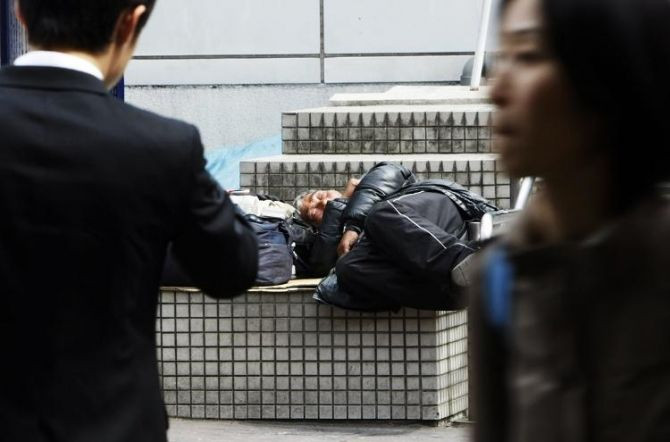Japanese Police Concerned About 'Lonely Deaths' After Latest Discovery

Japan has raised concerns over the rising number of the nation’s impoverished elderly people dying lonely, unnoticed deaths, after the discovery, on Tuesday, of three emaciated bodies of people who died unnoticed about two months ago.
The bodies were discovered in an apartment in Saitama, just north of Tokyo, officials believe the three were from the same family and that they died of starvation. Authorities believe that the bodies were of a couple in their sixties and their son in his thirties.
Police who broke into the apartment found that the electricity and gas had been cut off and that there was no food in the home, just a few coins, according to BBC reports.
Apparently the family had asked a neighbor for help, but the neighbor had refused and instead advised them to contact the welfare authorities, according to reports from Asahi Shimbun newspaper.
However the family did not seek government help because, according to speculation from some local media reports, of shame.
"Some people have a resistance to going on welfare and are reluctant to consult with authorities. Others are isolated in their communities," lawyer Takehiro Yoshida told Asahi Shimbun.
Although Japan is world's third richest country, the country has seen a growing number of similar cases lonely deaths, referred to as “kodokushi," in recent years.
Last month the bodies of two sisters in their forties had been discovered in their freezing apartment on the northern island of Hokkaido, according to BBC reports.
Two years ago remains of a mummified man who had died 30 years earlier were found in a Tokyo house when officials had planned to planned a birthday celebration for Sogen Kato, at the time registered to be 111 years old, but instead found him dead.
BBC reported that the case prompted a nationwide check that found that 281 people over 100 years old registered as alive were missing or have already died.
In the same year police found remains of a Japanese woman, registered to be 125 years old, in the backpack of the woman’s 64-year-old son, who had authorities that his mother had died nine years earlier.
"Because I didn't have money for a funeral, I didn't report her death," the man had said, according to Sankei Shimbun newspaper.
"I laid out her body for a while, washed it in the bath, then broke up the bones and put them into a backpack," he had told police according to AFP news agency.
The most recent discovery of the three bodies that laid unnoticed for two months has triggered soul-searching in Japan about whether the needy are “are falling through gaps” in the country’s welfare system, according to a BBC correspondent.



























